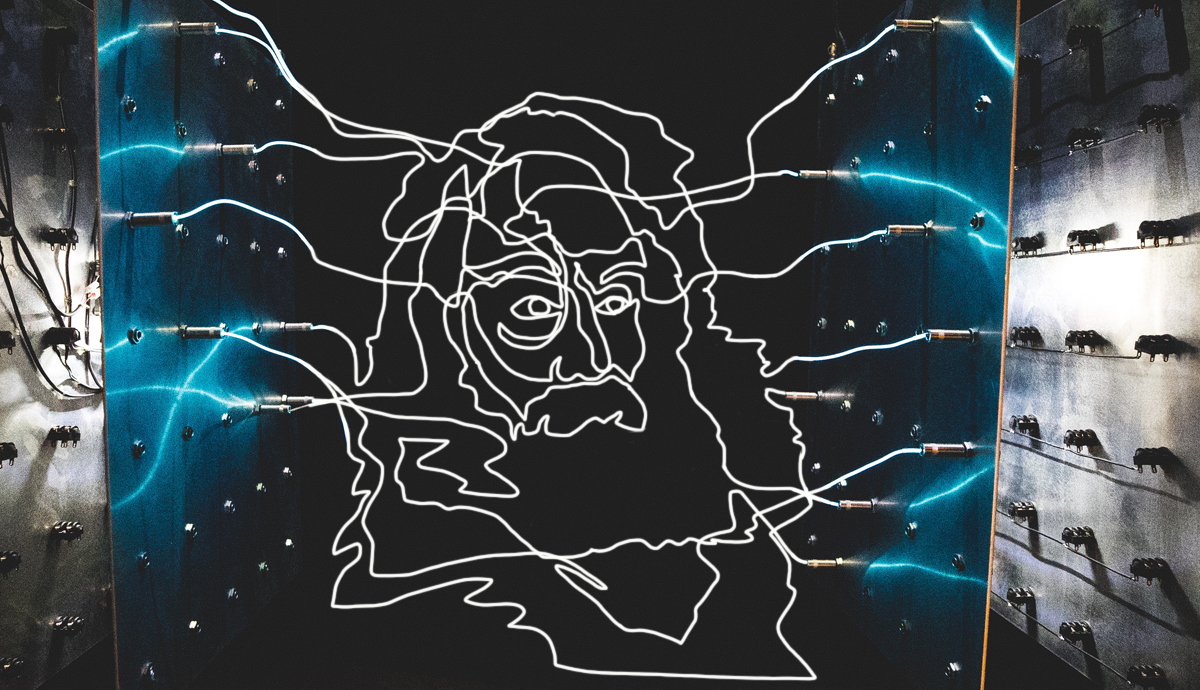Every Atom | No. 146
Introduction to Every Atom by project curator Brian Clements
At the start, Walt Whitman was not much of a singer. If you want proof, just look at the earliest edition of Leaves of Grass.
Yes, Whitman wrote, “I sing the body electric.” But that electrifying line does not appear in the 1855 edition.
Yes, he famously proclaimed, “I celebrate myself, and sing myself.” But that celebratory line also is not in the rollout volume.
Yes, “Song of Myself” is the best-known section of Leaves of Grass. But those three words never appear together on the pages of the first edition.
In 1855 Whitman just was not that into song.
Over the course of the following decades—while crafting eight new and ever-expanding editions of Leaves of Grass—Whitman would learn to sing. He would, in fact, learn to sing with abandon, with bravura.
Over time he would write the stunning lines of “One’s-Self I Sing” and give that poem prime position as the opening work of Leaves of Grass. In that brief poem, he would “sing” of wondrous things. The poem’s succinct refrain, “I sing,” is heard in the lines: “Of physiology from top to toe I sing,” “The Female equally with the Male I sing,” and “The Modern Man I sing.”
Over the years Whitman would also became quite a “song” writer. By the time of the publication of the final “deathbed” edition in 1892, Leaves of Grass had come to include a plethora of songs. “Song of the Open Road,” “Song of the Answerer” “A Song of Joys,” “Song of the Broad-Axe,” “Song of the Exposition,” “Song of the Redwood-Tree,” “A Song for Occupations,” “A Song of the Rolling Earth,” “Song of the Universal,” and “Song for All Seas, All Ships” appeared along with many other “Songs.”
But in 1855, when Whitman helped set the type for the first edition of Leaves of Grass, he had not yet really discovered song. In the original collection of poems, he sings only once: “I am satisfied . . . . I see, dance, laugh, sing.”
Singing is the most compelling metaphor of the final version of Leaves of Grass. It reflects Whitman’s optimistic faith in America’s democratic enterprise. Nowhere is this articulated more elegantly than in “I Hear America Singing,” in which he hears “the varied carols” of the carpenter, boatman, shoemaker, mother, and others. Whitman imagines “America signing,” a harmonious coming together of diverse voices.
Indeed, the potent metaphor of “singing” that Whitman introduced would be echoed and borrowed by succeeding generations of poets. Langston Hughes’ powerful poem “I, Too,” published in 1926, begins with the insistent lines, “I, too, sing America. / I am the darker brother.” And quite recently a beautiful poem by Ariel Francisco, “Along the East River and in the Bronx Young Men were Singing,” appeared in the New Yorker.
At the time he self-published the 1855 edition of Leaves of Grass, Whitman was still discovering his singing voice. But his bold message about equality and inclusivity was already plain to hear.
Recommended
Nor’easter
Post-Op Appointment With My Father
Cedar Valley Youth Poet Laureate | Fall 2024 Workshop







